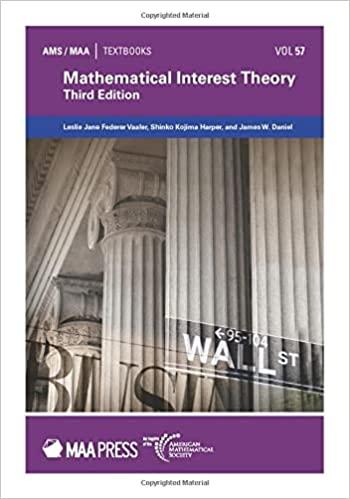Question
Question 1 [14 Points] Movies at a theatre can be rated 1 star, 2 stars, 3 stars, 4 stars or 5 stars, all with an
Question 1 [14 Points] Movies at a theatre can be rated 1 star, 2 stars, 3 stars, 4 stars or 5 stars, all with an equally likely chance. Assume you go to this theatre to see two movies successively. Then you go back home to check the ratings of these two movies. a) [2 points] Write out the sample space of all outcomes of the ratings of the two movies (e.g. outcome "12" means the rating of the first movie is 1 star and the rating of the second one is 2 stars). b) [3 points] Let A be the event that both movies have the same rating. List the outcomes in A. What is P(A)? c) [3 points] Let B be the event that one movie is rated 2 stars higher than the other movie. List the outcomes in B. What is P(B)? d) [3 points] Let C be the event that the first movie has a lower rating than the second movie. List the outcomes in C. What is P(C)? e) [3 points] Are events A & B disjoint events? What does this tell you about the P(A or B)? Calculate P(A or B).
Step by Step Solution
There are 3 Steps involved in it
Step: 1

Get Instant Access to Expert-Tailored Solutions
See step-by-step solutions with expert insights and AI powered tools for academic success
Step: 2

Step: 3

Ace Your Homework with AI
Get the answers you need in no time with our AI-driven, step-by-step assistance
Get Started


